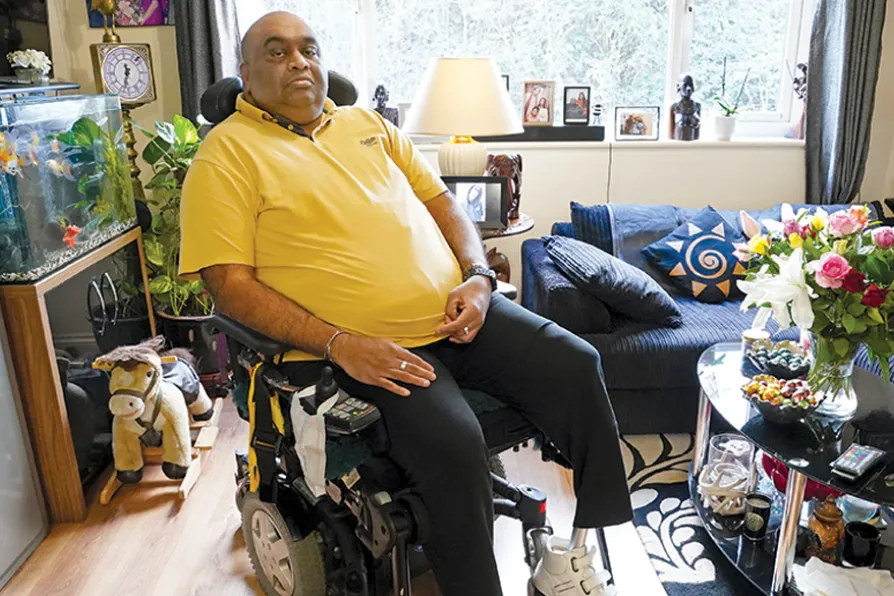Does widespread and uncontrolled use of AI change our relationship with scientific meaning? Or with each other? ask ROX MIDDLETON, LIAM SHAW and MIRIAM GAUNTLETT
Let down by ‘care via video call’
RUTH HUNT looks at the risks of remote appointments for patients with long-term spinal cord injuries, who have substantial clinical needs

 INADEQUATE CONSULTATION: 50-year-old Thirugnanam Sureshan at his home in Bexhill-on-Sea, East Sussex, suffers from a range of conditions including diabetes, sleep apnoea and cardiac problems
INADEQUATE CONSULTATION: 50-year-old Thirugnanam Sureshan at his home in Bexhill-on-Sea, East Sussex, suffers from a range of conditions including diabetes, sleep apnoea and cardiac problems
WE know the NHS is going backwards on key performance targets. This raises concern for patient groups, such as those with long-term spinal cord injuries (SCI) who, prior to the pandemic would have a yearly, in-person, monitoring appointment, regardless of their clinical need.
These appointments are crucial because, as those with SCI age, they are more prone to developing life-limiting secondary conditions. But it’s not just physical factors a spinal team should be assessing, as living with a disability or disabilities can also take a heavy toll on mental health.
The NHS Care Pathway for Spinal Cord Injuries calls it: “Lifelong follow-up of people living with SCI to prevent and manage SCI related complications.”
Similar stories

Due to the actions of this government, the challenges facing those with disabilities, such as spinal cord injuries, are nigh on insurmountable, argus RUTH HUNT

A small Japanese trial has reported some positive results for stem cell therapy to treat spinal-cord injuries

By making Personal Independence Payments harder to access, Labour is creating another barrier for those already struggling with soaring care costs, workplace discrimination and prejudiced employers, argues RUTH HUNT










